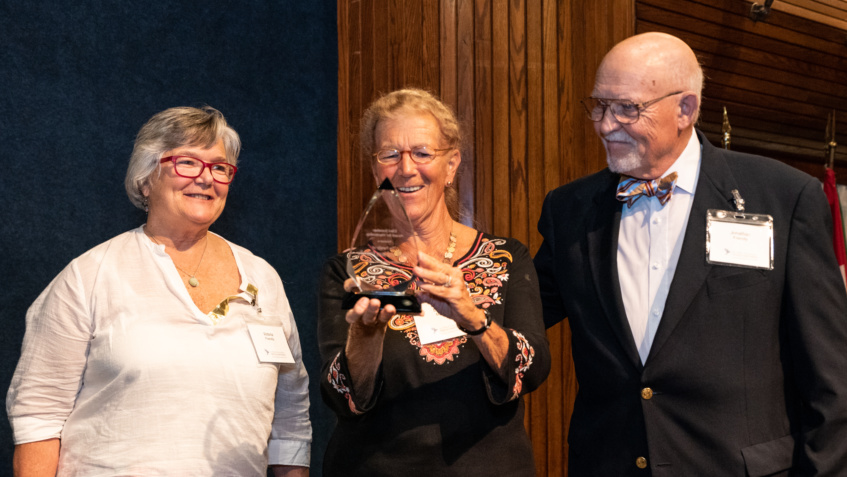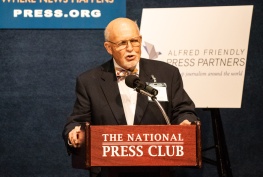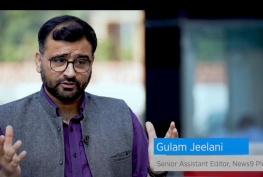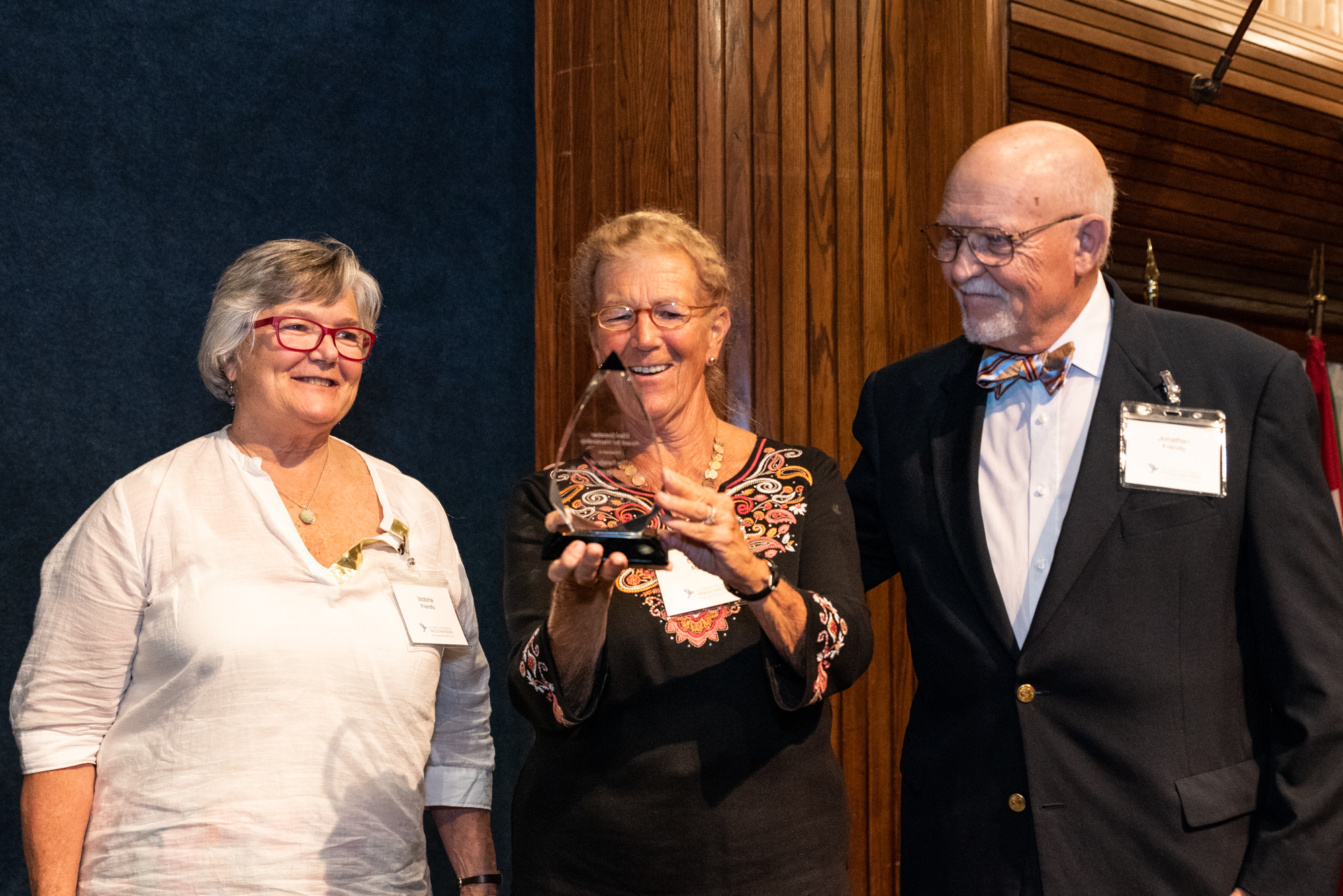
Alfred and Jean Friendly’s children — Victoria, Lucinda and Jonathan — represent the family’s enduring support for the fellowship program
The journalism fellowship program envisioned by Alfred Friendly back in the early 1980s was always a family affair, with his wife, sons and daughters playing key roles in designing the program, developing newsroom partnerships, and selecting and mentoring young reporters from around the world.
“It’s one of the threads that’s helped keep the family together, the belief that this thing we started deserved continued attention,” Jonathan Friendly said during the benefit gala at the National Press Club in Washington on Sept. 7.
Jonathan recalled the genesis of their 35-year old foundation as he and his sisters accepted the Ellen Soeteber Award for Mentorship, named for the late newspaper editor who was a board member of the Alfred Friendly Foundation, and a longtime mentor and supporter of the program.
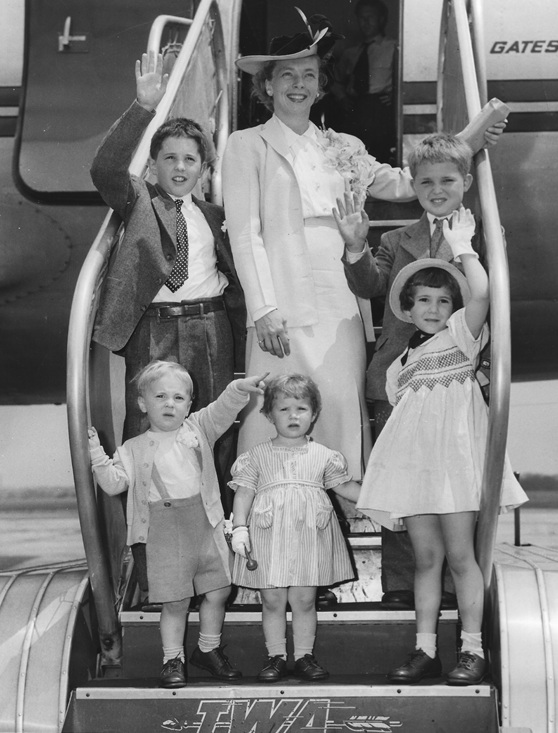
Jean Friendly and her five children board a plane for France. Bottom row: Nick, Victoria, Lucinda. Top row: Alfred Jr., Jean, Jonathan
Jonathan, a reporter for The New York Times back then, has said that he and his father agreed that the Western press failed to offer a helping hand to journalists in developing countries.
“When my father initiated this program he was dying of cancer,” Jonathan told the audience. “He said, ‘Journalism has been good to me and I want to do something good for journalism.’” There was no hesitation from the family when he asked them to sign on to his mission. “My mother, Jean, sisters Victoria and Lucinda, older brother Alfred, younger brother Nicholas and I all said, ‘You bet.”
What emerged from family discussions was a unique program, centered on training journalists in U.S. newsrooms, a direct professional-to-professional experience that didn’t depend on governments or other outside agencies. Alfred Jr. ran the foundation for the first two decades, Jonathan is the current chairman and daughter-in-law Amy Weissman is a director.
Alfred Friendly was assistant managing editor and managing editor of The Washington Post in the 1950s and ‘60s, a crucial period of expansion. Under his direction the paper opened its first overseas news bureaus — first in Europe, where he had worked briefly after the war in the organization of the Marshall aid program. But shortly, because Africa had always interested him, there was a bureau in Nairobi, according to an account in the Post.
When he left the job of managing editor in 1966, he became the paper’s London correspondent and traveled frequently in the Middle East, another great interest of his, and he won the Pulitzer Prize in 1968 for his coverage of the Arab-Israeli war.
The gala took place near the 50th anniversary of that award. Jonathan said that the work that earned his father the Pulitzer near the end of his career “didn’t lead directly to this program, but it helped him realize that he wanted to give back.”
Jonathan said the program nurtured by the family changed over the years. “It’s really quite different, and I think it’s very much better. Our program has gotten stronger, more thoughtful.”
And with sisters Victoria and Lucinda beside him, Jonathan said he wished his entire family could have been there to witness the latest developments in their mission to uplift journalism around the world.

